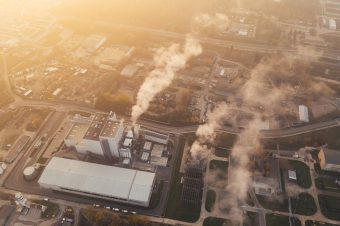
The European Union has adopted an amended directive on industrial and livestock emissions, 2024/1785 (IED 2.0), granting citizens greater rights than the directive adopted in 2010. Now, the European Commission announced they can seek compensation for damages caused by polluters.
The directive already covers over 30,000 large industrial plants and more than 20,000 intensive livestock farms, and by 2017, these regulations had reduced air pollution from the mentioned facilities by up to 75 percent.
However, considering that pollution from these sources continues to harm public health and the environment—resulting in damages worth billions of euros and causing hundreds of thousands of premature deaths annually—the European Union has, for the first time, established the right of citizens to seek compensation for health damages caused by pollution.
Furthermore, the strengthened IED will now also encompass mines and gigafactories for batteries, significantly broadening the scope of the directive. This extension will bring an additional 30 percent of the EU’s largest pig and poultry farms under the regulatory umbrella, furthering the directive’s potential impact.
More:
- Latin America and the Caribbean Launch First Regional Eco-Labeling Programme
- Green steel can cut climate impact of car production for just €57 a vehicle
- Two Years of REPowerEU: Strengthening Europe’s Energy Resilience
The new Industrial Emissions Directive, IED 2.0, stands as the European Union’s primary instrument for combatting air, water, and soil pollution. It also serves as a key preventative measure against waste generation from large industrial plants and intensive livestock farms, underscoring its comprehensive approach to environmental protection.
Governments must now always consider protecting human health when applying emission rules. At the same time, authorities will have greater powers to suspend installations that do not comply with regulations and demand higher penalties from offenders.
Additionally, all permits and significant environmental data must be publicly available online on the European Industrial Emissions Portal.
The IED 2.0 directive requires companies to use the best available techniques (BAT) to prevent or minimize emissions and environmental impacts from their activities. This will help guide major European industries toward achieving the EU’s zero pollution ambitions by 2050.
It is also stated that IED 2.0 will encourage innovation, reward leaders, help level the playing field within the EU market, and increase long-term investment security for the industry.





